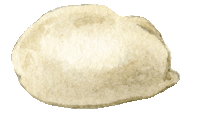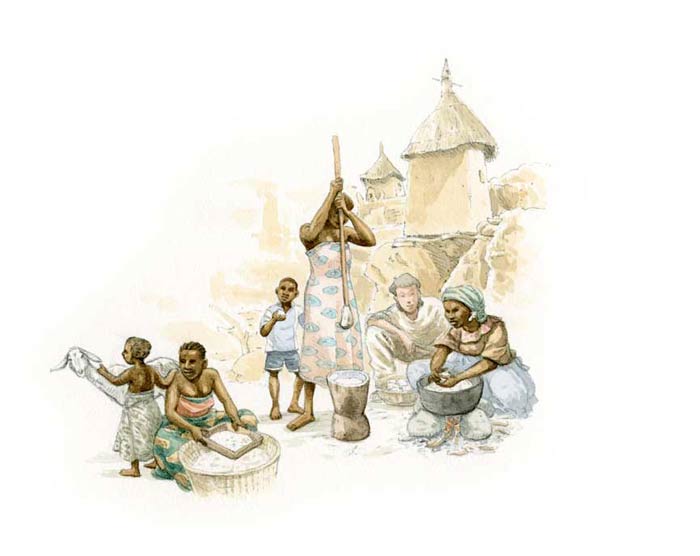Fufu

Form: Ball-shaped
Country of origin: Ivory Coast
What distinguishes it from other methods of bread making: Often made with yam flour
Category of bread: (6 and 7) Strictly speaking, fits no category, other than its method of preparation, using boiled flour; could be compared to other poached bread, such as Polish bagels
Particularity: Variants made with manioc and/or plantain flour
Ingredients: Flour made from crushed yam (fufu); water

Ivory Coast
Yam designates the tuber from the plant bearing the same name. It is high in starch, and traditionally used in cooking in tropical regions. The biggest producer is by far Nigeria, way ahead of its competitors. In English the word “yam” comes from the word “yam,” which means, in several African languages, “to eat.” The name indicates the fundamental place the yam holds in the food system of these populations. Along with millet, it serves as an essential ingredient in the cuisine of a wide number of African countries.
Fufu in the wider sense of the term refers to any flour-like product obtained from yams, manioc or plantains. The tuber is boiled for a long time, until it is soft enough to be crushed in a mortar until it is more or less like flour. The fufu is then mixed with boiling water to form rather thick dough. It is then shaped into balls of various sizes, referred to as fufu bread.
It is therefore extremely easy to make, and doesn’t require any special utensils or equipment. All you have to have is fufu flour, a heat source, a recipient that can go on the fire, and to know how to crush it rhythmically while singing. This is what the Africans do, in an unequalled manner that makes it into pure art. Fufu bread is served with meat or fish and cooked vegetables.

